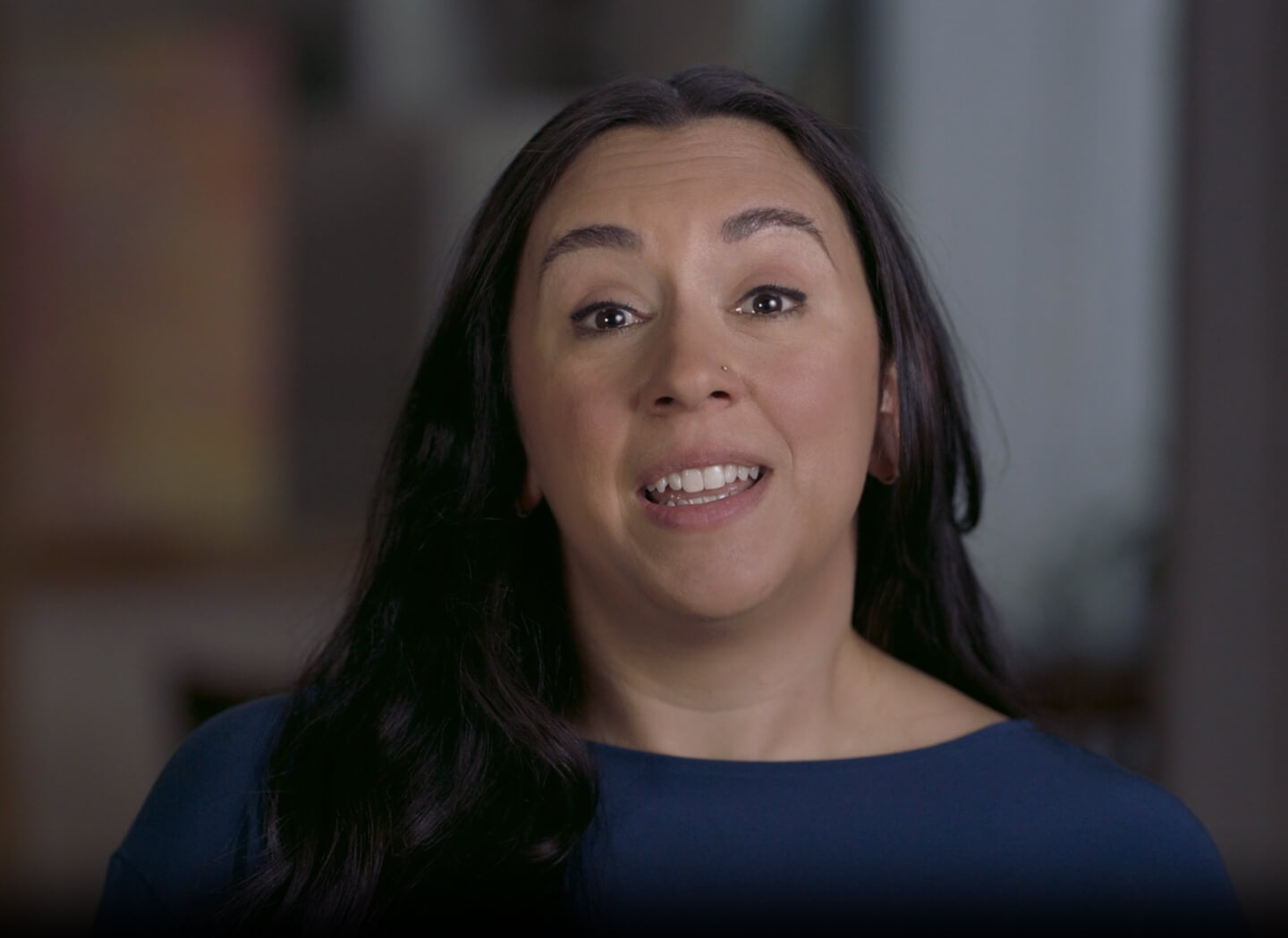Talking with a clinician about PTSD treatment
Shared decision-making is when you and your clinician work together to make decisions about treatment. Your clinician has valuable information about different treatments and how they work. You are an expert on what your preferences are and what goals you have. For treatment to be the most successful, it’s important that you feel comfortable to advocate for yourself.

Ask questions
Leah Parady (US Air Force) encourages you to advocate for your own health care
0:50
If you already have a mental health clinician, call and ask to set up an appointment to talk about PTSD treatment options. During your visit, there are a number of ways that you can work with your clinician to make a decision about which treatment might be right for you.
Ask questions
The PTSD Treatment Decision Aid may answer some of your questions, and you may still have some questions for your clinician. Some people feel nervous about asking their clinician questions. But it is your clinician's job to make sure your questions get answered.
Which questions aren't ok to ask
You can ask for more information if you don’t feel like you understand. You can ask to record the visit on your cell phone so you can listen to it later, or simply take notes. If your clinician uses words or abbreviations that are not familiar to you, ask for an explanation. You could also ask for resources (like brochures or websites) that can give you more information about PTSD treatment.

Express your concerns
If you have concerns about treatment, mention them to your clinician. They may be able to help you think of a way to address them. You may need extra time to talk about your concerns; if so, ask your clinician. You may decide to schedule another appointment together.

Advocate for yourself
It can be hard to speak up in treatment when it feels like a clinician is an authority, especially if you’ve had bad experiences in the past. Maybe you experienced discrimination or didn’t feel heard by a clinician. But this is really your treatment. And in treatment for PTSD, your clinician wants you to be an active part of the process. Let them know what is important to you.
Bring someone to attend a treatment session with you
Many people want to know if they can bring a family member or friend with them to PTSD treatment sessions. In general, having friends and family who are supportive of your treatment can be very helpful. Through attending a session, they can learn more about PTSD and how to support you. A loved one may also be able to help you ask questions, remember answers, or help you take notes. Check with your clinician to find out their policy about bringing someone with you to treatment. There also are different policies about whether it is OK to bring a service animal or an emotional support animal with you to treatment—so this is another good question for your provider.
Share your goals
You should tell your clinician what you want to get out of treatment. Your goals and preferences are important to help your clinician guide you in the decision-making process.
Finding a clinician
Many types of clinicians can deliver PTSD treatment. There are a few different ways to find a PTSD provider.
- If you have a clinician you trust, ask them for a recommendation to a PTSD specialist. You can also ask friends and family if they can recommend someone.
- If you have health insurance, call to find out which providers your insurance company will pay for.
-
Search for a clinician online.
- Psychology Today offers a therapist directory by location. You can also find treatment centers, teletherapists (online services), or support groups.
- ISTSS Clinician Directory is a service provided by the International Society for Traumatic Stress Studies (ISTSS) that lets you consider many factors in searching for a clinician, counselor, or mental health professional.
- American Psychological Association has a Psychologist Locator that allows you to search by location, specialty, insurance accepted, and gender identity of provider.
- If you are a Veteran enrolled in VA health care, you can ask your VA primary care provider for a referral to speak with a mental health provider, or you can self-refer to mental health services. Learn more about resources for Veterans.


